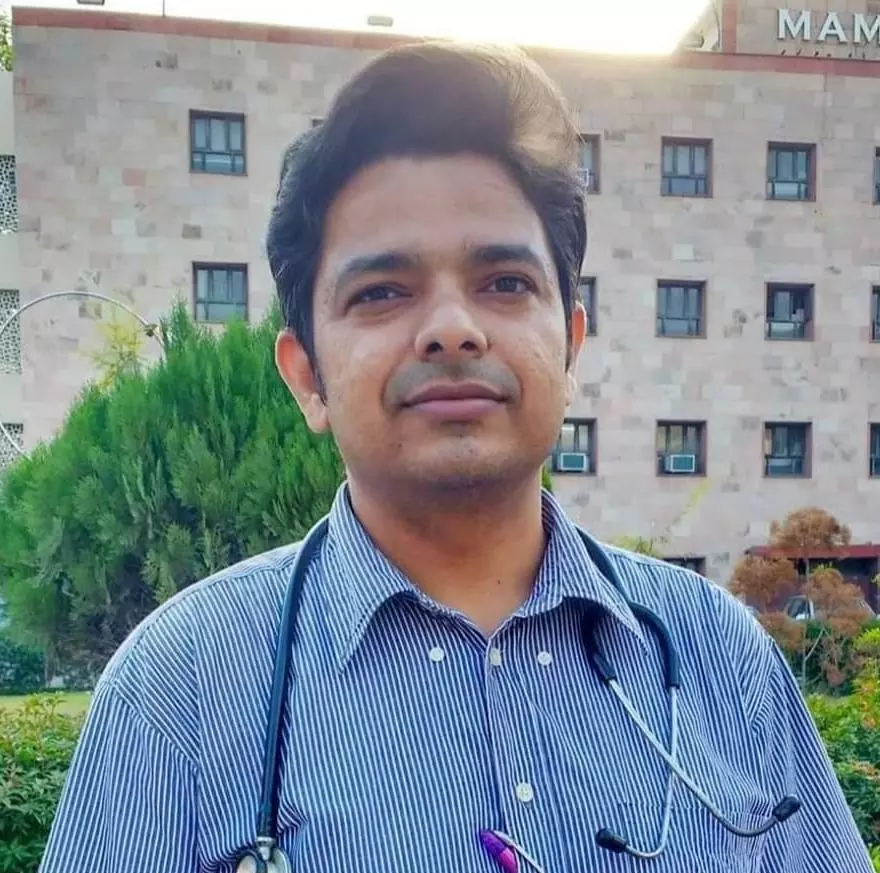- Home
- Medical news & Guidelines
- Anesthesiology
- Cardiology and CTVS
- Critical Care
- Dentistry
- Dermatology
- Diabetes and Endocrinology
- ENT
- Gastroenterology
- Medicine
- Nephrology
- Neurology
- Obstretics-Gynaecology
- Oncology
- Ophthalmology
- Orthopaedics
- Pediatrics-Neonatology
- Psychiatry
- Pulmonology
- Radiology
- Surgery
- Urology
- Laboratory Medicine
- Diet
- Nursing
- Paramedical
- Physiotherapy
- Health news
- Fact Check
- Bone Health Fact Check
- Brain Health Fact Check
- Cancer Related Fact Check
- Child Care Fact Check
- Dental and oral health fact check
- Diabetes and metabolic health fact check
- Diet and Nutrition Fact Check
- Eye and ENT Care Fact Check
- Fitness fact check
- Gut health fact check
- Heart health fact check
- Kidney health fact check
- Medical education fact check
- Men's health fact check
- Respiratory fact check
- Skin and hair care fact check
- Vaccine and Immunization fact check
- Women's health fact check
- AYUSH
- State News
- Andaman and Nicobar Islands
- Andhra Pradesh
- Arunachal Pradesh
- Assam
- Bihar
- Chandigarh
- Chattisgarh
- Dadra and Nagar Haveli
- Daman and Diu
- Delhi
- Goa
- Gujarat
- Haryana
- Himachal Pradesh
- Jammu & Kashmir
- Jharkhand
- Karnataka
- Kerala
- Ladakh
- Lakshadweep
- Madhya Pradesh
- Maharashtra
- Manipur
- Meghalaya
- Mizoram
- Nagaland
- Odisha
- Puducherry
- Punjab
- Rajasthan
- Sikkim
- Tamil Nadu
- Telangana
- Tripura
- Uttar Pradesh
- Uttrakhand
- West Bengal
- Medical Education
- Industry
Clinical Benefit of Intensive Blood Pressure Lowering in hypertensive Patients over 60 years - Video
Overview
For patients 60 years and older with hypertension, 1 intensive BP treatment may be appropriate for some adults with a life expectancy of greater than 3 years but may not be suitable for those with less than 1 year, as suggested by the latest research published in the 2 JAMA Network.
Recent guidelines recommend a 3 systolic blood pressure (BP) goal of less than 150 mm Hg or even 130 mm Hg for adults aged 60 years or older. However, harms from intensive BP treatments occur immediately (eg, syncope, fall), and benefits for cardiovascular event reduction emerge over time. Therefore, harms with a low chance of benefit need to be clearer, particularly for those with limited life expectancy.
The analysis conducted by Tao Chen et. al tried to estimate the time needed to potentially derive clinical benefit from intensive BP treatment in patients 60 years and older.
This secondary analysis included individual patient data from published randomized clinical trials with 27414 patients 60 years or older with hypertension. Patient-level survival data were reconstructed when the original data were not available. Published trials were identified by searching PubMed until October 15, 2021.
Six trials (original data from 2 trials and reconstructed data from 4 trials) with 27 414 participants (mean age, 70 years; 56.3% were women) were included in the analysis.
Speakers
Dr B.P. RAHUL
MBBS (Bachelor of Medicine and Bachelor of Surgery)



